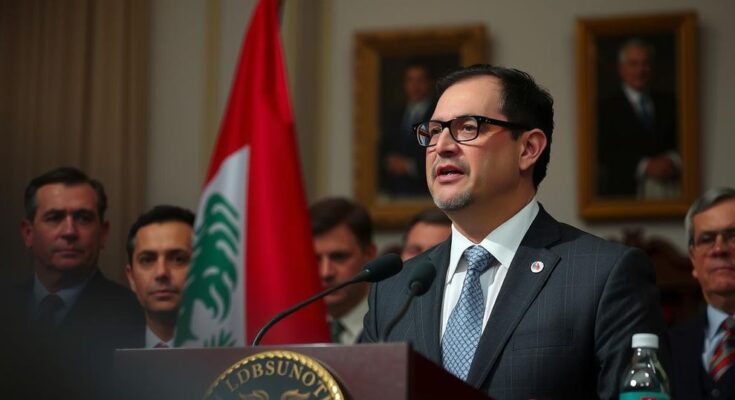Joseph Aoun has been elected as Lebanon’s new president, ending a two-year political deadlock. He aims to implement significant reforms and strengthen governance amidst Lebanon’s ongoing economic and political turmoil. His commitment to legal and judicial reforms and securing national borders reflects a clear strategy for recovery and stability. International leaders have expressed their support, marking a positive shift in Lebanon’s political landscape.
Lebanon has elected Joseph Aoun as its new president after a protracted two-year political deadlock. His election marks a pivotal moment for the nation, which has faced extensive economic and political challenges. Aoun, previously the army commander, received significant support from a diverse coalition and aims to usher in political reforms, including legal and judicial changes. He has pledged to initiate consultations for selecting a new prime minister who will collaborate with him to stabilize Lebanon and will also focus on asserting the state’s authority over weapons and prioritizing military investment to secure national borders. The reactions to his election were largely positive, with regional and international leaders expressing hope for Lebanon’s recovery and stability.
Lebanon’s political structure is characterized by a sectarian power-sharing system, where the positions of president, prime minister, and parliament speaker are distributed among various religious groups. This complexity has often resulted in prolonged political vacancies and instability. The election of Joseph Aoun, particularly after the long absence of a president, signifies a potential shift towards rebuilding trust in the political system. The support he received, especially from Hezbollah and the Amal Movement, indicates a desire amongst those parties to stabilize Lebanon and garner international aid amid a dire economic situation. Aoun’s recognition of the need for change and reform speaks to a broader consensus on the dire state of the nation and the imperative for constructive governance.
The election of Joseph Aoun as president is a hopeful development for Lebanon, signaling the end of an exhaustive political vacuum and a renewed path toward governance and stability. His commitments to reform, collaboration, and a strong state mandate on arms hold promise for altering the political landscape in Lebanon. The future trajectory of the nation will largely depend on his ability to form a capable government that addresses both domestic challenges and regional tensions, paving the way for recovery from enduring crises.
Original Source: www.chinadailyhk.com




